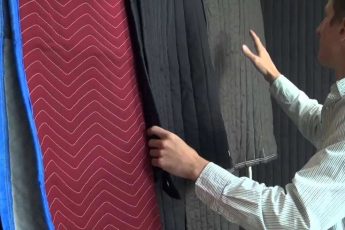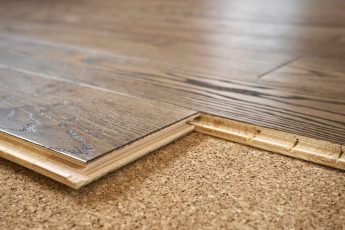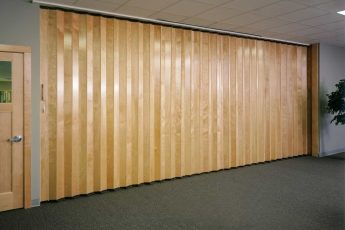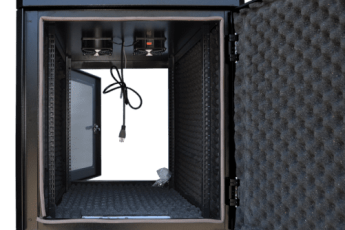When trying to reduce shower pump noise, there are a few things you can do. These include soundproofing, insulating, using a vibration pad, and cleaning the shower head. Hopefully, these tips will help you to reduce pump noise and enjoy your shower more. After all, it’s your money and you deserve a peaceful bathroom.
Soundproofing
Soundproofing a shower pump can greatly reduce the noise produced by this appliance. To achieve this, build a soundproof box around the pump. This box should completely enclose the pump and can be made out of MDF and fixed with screws and nails. You can also add soundproof materials to the box, like foam, to make it even more soundproof.
If you’re not comfortable installing soundproofing, you can cover the interior walls with thick, plush material. This material is cheap and easily available online. It’s best to purchase the heavier, higher-grade variety, but basic/cheap ones should do the trick. Using acoustic caulk is another effective method to reduce sound transmission.
While soundproofing a shower pump can help to minimize noise, it’s important to consider the type of noise that the pump generates. Many pumps have extended warranties and may be replaced or repaired if you’re not satisfied with its performance. However, cheap pumps can quickly become noisy over time, so make sure to read the manufacturer’s noise specifications carefully before purchasing one.
Besides soundproofing, you can also try installing a sound-reducing pad. These pads are a relatively cheap way to reduce the noise produced by the pump. If you live in a house with wood paneling, a noise-reducing pad may be a great option. Many contractors don’t think about installing these soundproofing pads and overlook them. If you haven’t done this yet, talk to your contractor or landlord about the options available.
If you are not confident enough to DIY, you can choose to hire a plumber to install the soundproofing. However, it’s best to hire a professional plumber who has experience in plumbing. The consequences of a faulty installation can be significant.
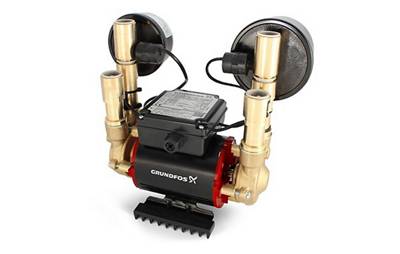
Insulation
You can reduce the noise of your shower pump by installing extra insulation. For instance, you can put the pump in a closet with the hot water tank and install mass-loaded vinyl or foam on the walls. However, be aware that some types of insulation may pose a fire risk. Another way to reduce noise is to install a sound-proofing box. This can be as thick as 12mm and is topped with a noise-absorbing material. You can also add an acoustic baffle to help reduce the noise.
The best way to reduce the noise of a shower pump is to use an impact-blocking box. This will help reduce the sound and vibration of the shower pump. When you install an impact-blocker box, be sure to take note of where the pipes are in the box. Be sure to cut the material so that it fits tightly around the pipes.
Alternatively, you can place an acoustic mat under the pump to dampen the vibration. Using a rubber mat will greatly reduce the noise generated by your shower pump. You can also choose a box made of plywood or MDF and cover it with acoustic insulation. This way, you can keep noise from reaching other rooms.
Soundproofing boxes also help reduce noise by enclosing the pump. You can build one by using MDF and nails or screws. If you can’t find a soundproofing box, you can also add other sound-proofing materials. However, this is not a practical solution in a small space.
Sound-proofing materials are also available in the form of blankets or batts. These materials are very effective in absorbing sound. They can be used to fill cavities in walls and ceilings. Moreover, they help reduce the noise created by pipes in the walls.
Vibration pads
Installing vibration pads on the floor around a shower pump can help reduce the noise produced by the pump. These are relatively inexpensive and can help make the shower less noisy. Also, it is important to make sure that pipes are well supported so that they do not move and create noise. Another way to minimize vibration is to mount the pump on a concrete block. This is especially useful for homes with wood-based paneling.
Another option is to reroute the pipes to a new location, such as the attic or garage. These are both convenient spaces, but it’s important to make sure the new location won’t cause vibrations in adjacent rooms. While a garage is typically far enough away from the house to be noise-free, the noise from a shower pump can still reach rooms above. Thankfully, soundproofing a garage is fairly easy.

Another option is to install a noise-insulation box over the shower pump. This will reduce both the noise it produces and the vibrations it produces. The boxes are designed to isolate the pump from the rest of the room. Once the boxes are installed, they can be filled with insulating material. To further reduce the noise from the shower pump, you can also use a thick, rugged mat that can absorb the vibrations produced by the pump.
While all pumps create noise, the sound of a shower pump shouldn’t be so loud that it disturbs other rooms in the house. If it does, the pump might be faulty or simply not fitted correctly. If this is the case, you may need to replace it or move it to a different location.
Cleaning the shower head
The noise from your shower pump can be reduced by cleaning the shower head regularly. This will remove mineral deposits that build up in the nozzle. It will also kill bacteria that grow in the trapped moisture. The best part is that you don’t have to purchase a specialized cleaning solution to do the job. You can use common household cleaners that are nontoxic and inexpensive.
Shower heads can be difficult to clean. The minerals in tap water can cause clogged shower heads. Cleaning them with white vinegar will remove the buildup. You can also try a flow restrictor, which will reduce the flow of water. However, this may not work if your water pressure is too low.
If the noise persists, it might be time to call a plumber. A clogged shower pipe can cause the pump to rattle and hum. It can be a result of mineral deposits and limescale buildup in the pipes. It is essential to check all pipes in the shower to ensure that they are not obstructed by debris.
Changing the shower head regularly will help you reduce the noise coming from the shower pump. The water temperature can also contribute to noise. Using a cleaning solution based on white vinegar will help remove minerals without damaging the metal. The shower head can also be cleaned with a pipe cleaner or toothbrush.
Cleaning the shower head can also help you save money and energy. First, remove the shower head’s filter. If you can’t remove the filter, use a tweezers to pull out the filter. Warm water will help remove light mineral deposits. Once it’s clean, you can attach it to the pipe.

Routine maintenance
One way to reduce the noise of your shower pump is to perform routine maintenance. The first step in maintaining your pump is to clean the water piping around it. This will ensure that the water system is functioning properly. In addition, it will allow you to identify any rusted or loose pipes. If you find that your pump is making excessive noise, it may be time to seek professional assistance.
Another method is to install a flow switch. While a flow switch can lower the noise level, you should still ensure that your radiators and tower rails are warm. You should also check the motor grounding. An improper grounding can act as a noise transmitter. If you’re using a VFD, you should make sure the motor is properly grounded.
Performing routine maintenance can reduce noise and prevent pump failure. Some common maintenance procedures include checking valves for free travel, inspecting main components, and replacing worn parts. Additionally, it is important to check the temperature in the room where the pump is located. A good maintenance schedule will ensure that you don’t have to deal with excessive noise from your shower pump.

